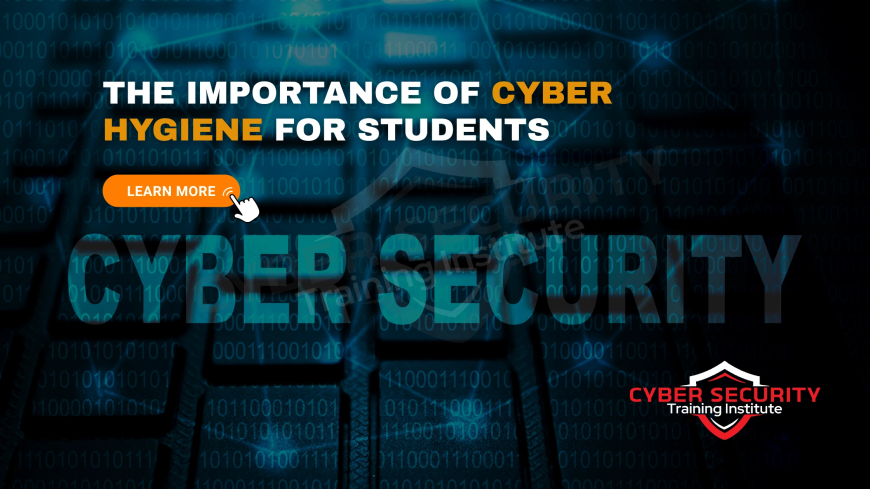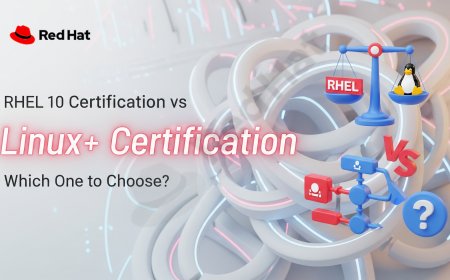Why Is Cyber Hygiene Important for Students Using Personal Devices?
Imagine you're a high school student rushing to finish a last-minute assignment. You grab your laptop, connect to the free Wi-Fi at your local coffee shop, and start downloading resources from a quick online search. Everything seems fine until a few days later, when you notice strange pop-ups, your device slowing down, and worst of all, unauthorized charges on your linked bank account. This isn't just a bad dream—it's a real scenario playing out for too many students today. In fact, between July 2023 and December 2024, a staggering 82% of K-12 schools experienced at least one cybersecurity incident, often stemming from personal devices. With personal devices like laptops, tablets, and smartphones becoming essential for learning, especially in hybrid and remote setups, the risks are higher than ever. Cyber hygiene might sound like a buzzword, but it's simply the everyday habits that keep your digital life clean and secure, much like brushing your teeth prevents cavities. For students, who often juggle schoolwork, social media, and online gaming on their own gadgets, good cyber hygiene isn't optional—it's crucial. These devices hold sensitive info like grades, personal emails, and even financial details if they're used for apps or online shopping. A single slip-up can lead to identity theft, academic disruptions, or even long-term privacy issues. As we head deeper into 2025, with AI-driven threats on the rise, understanding and practicing cyber hygiene can make the difference between a smooth school year and a digital disaster. This blog dives into why cyber hygiene matters for students using personal devices. We'll break down the basics, explore common threats, share practical tips, and look at real-world examples. Whether you're a student trying to stay safe, a parent guiding your kid, or a teacher promoting digital responsibility, this guide is designed to be straightforward. No tech wizardry required—just simple, actionable advice to build better habits. Let's get started on making your online world a safer place.

Table of Contents
- What Is Cyber Hygiene?
- The Rise of Personal Devices in Education
- Common Cyber Threats to Students
- Why Cyber Hygiene Is Crucial
- Best Practices for Students
- The Role of Parents and Schools
- Real-World Examples and Lessons
- Table: Common Threats and Mitigation Strategies
- Conclusion
- FAQs
What Is Cyber Hygiene?
Cyber hygiene is all about the routine steps you take to keep your devices and online activities secure. Think of it as personal hygiene for your digital life—regular habits that prevent problems before they start. Just like washing your hands stops germs, updating your software stops hackers from exploiting weaknesses.
For students, this means simple things like using strong passwords, avoiding suspicious links, and keeping apps up to date. It's not about being a cybersecurity expert; it's about building habits that protect your info automatically. Why does this matter? In a world where students spend hours online for homework, research, and connecting with friends, poor habits can lead to big troubles. A 2025 report highlights that cyber risks have risen 72% in the past year, with phishing and fraud leading the way. Good cyber hygiene acts as your first line of defense.
Let's break it down further. Cyber hygiene includes both technical steps, like enabling firewalls (which block unauthorized access), and behavioral ones, like not sharing passwords. It's ongoing—threats evolve, so your habits should too. For beginners, start small: Check your device's security settings once a week. Over time, it becomes second nature, keeping you safe without much effort.
One common misconception is that only "important" people get targeted. But students are prime targets because they often have less experience and more online exposure. By practicing cyber hygiene, you're not just protecting yourself; you're contributing to a safer online community for everyone.
The Rise of Personal Devices in Education
Gone are the days when school meant just textbooks and chalkboards. Today, personal devices are at the heart of learning. From laptops for virtual classes to smartphones for quick research, students rely on their gadgets more than ever. The pandemic accelerated this shift, and in 2025, hybrid learning is the norm in many places.
This rise brings amazing benefits: Access to endless resources, collaborative tools like Google Docs, and personalized apps for subjects like math or languages. But it also means more risks. Personal devices aren't always managed by school IT teams, so security falls on the user—you, the student.
Stats show the scale: In the UK, cyber crime victim density rose 40% from 2020 to 2021, partly due to increased device use for work and school. By 2025, with IoT (Internet of Things) devices like smartwatches adding to the mix, the attack surface grows. Students might connect to unsecured networks at home or cafes, exposing data.
Schools are responding with bring-your-own-device (BYOD) policies, but enforcement varies. This puts the onus on students to maintain hygiene. It's empowering—own your device, own your security—but it requires awareness. As education goes digital, cyber hygiene becomes as essential as studying for exams.
Common Cyber Threats to Students
Students face a variety of online dangers, often without realizing it. Let's look at the most common ones affecting personal devices.
Phishing tops the list: Fake emails or messages tricking you into clicking links or sharing info. A "school update" email might lead to malware infection.
Ransomware locks your files until you pay—imagine losing access to your essays right before submission. Attacks on education rose 23% in early 2025.
Malware, like viruses from dodgy downloads, can spy on your activities or steal data.
Cyberbullying and sextortion use devices to harass, often via social media.
Unsecured Wi-Fi lets hackers intercept data, while weak passwords make accounts easy targets.
These threats disrupt learning and can have lasting effects, like stolen identities affecting future opportunities.
Why Cyber Hygiene Is Crucial
Good cyber hygiene isn't just nice to have—it's essential for protecting your future. It prevents data loss, like grades or personal photos, and avoids financial hits from scams.
It builds trust: Safe habits mean worry-free collaboration. Legally, it helps comply with privacy laws like FERPA.
Long-term, it teaches responsibility, preparing you for careers where cybersecurity is key. With threats up, hygiene is your shield.
Without it, small mistakes snowball into big problems, affecting mental health and academics.
Best Practices for Students
Building good habits is easier than you think. Here's how:
- Use strong, unique passwords—mix letters, numbers, symbols. Consider a password manager.
- Enable MFA: An extra code via app or text.
- Update software regularly: Patches fix vulnerabilities.
- Avoid public Wi-Fi for sensitive tasks; use VPNs.
- Back up data: Cloud or external drives prevent loss.
- Think before clicking: Verify sources.
- Install antivirus: Free options work well.
Make it routine: Weekly checks keep you secure.
The Role of Parents and Schools
Parents can model good habits, discuss risks, and set rules like no devices at dinner.
Schools should teach hygiene in curriculum, provide resources, and enforce policies. Collaboration ensures students thrive safely.
Real-World Examples and Lessons
The PowerSchool breach in 2025 affected 62 million students, highlighting vendor risks but also personal device vulnerabilities.
A Chicago breach exposed thousands' data, showing phishing dangers. Lessons: Stay vigilant, update often.
Table: Common Threats and Mitigation Strategies
| Threat | Description | Mitigation |
|---|---|---|
| Phishing | Fake messages tricking users | Verify sources, don't click unknown links |
| Ransomware | Locks files for ransom | Backups, updates |
| Malware | Harmful software | Antivirus, safe downloads |
| Weak Passwords | Easy to guess | Strong passwords, MFA |
| Unsecured Wi-Fi | Exposes data | Use VPNs |
Conclusion
Cyber hygiene is vital for students using personal devices, protecting against threats like phishing and ransomware while enabling safe learning. We've covered definitions, threats, practices, and roles of support systems. By adopting habits like strong passwords and updates, you safeguard your data and future. Start today—small steps lead to big protection. Stay safe online!
What is cyber hygiene?
Cyber hygiene refers to everyday habits that keep your devices and data secure, like updating software and using strong passwords.
Why do students need cyber hygiene?
Students use devices for school and personal activities, making them vulnerable to threats that can steal data or disrupt learning.
What are common threats to students?
Phishing, ransomware, malware, and unsecured networks are frequent risks.
How can I create a strong password?
Use a mix of letters, numbers, and symbols, at least 12 characters long, and avoid common words.
What is MFA?
Multi-factor authentication adds an extra verification step, like a code sent to your phone.
Should I use public Wi-Fi?
Avoid it for sensitive tasks; use a VPN if necessary to encrypt your connection.
How often should I update my device?
Enable automatic updates or check weekly to patch security holes.
What is phishing?
Phishing is when scammers send fake messages to trick you into revealing information.
Why backup data?
Backups allow you to recover files if hit by ransomware or device failure.
Can parents help with cyber hygiene?
Yes, by discussing risks and monitoring device use.
What role do schools play?
Schools can teach hygiene through classes and provide resources.
Is antivirus necessary?
Yes, it detects and removes malware; free versions are effective.
What if I click a bad link?
Disconnect from the internet, run a scan, and change passwords.
How does cyber hygiene affect privacy?
Good habits prevent data leaks, protecting personal information.
Are smartphones at risk too?
Yes, they face similar threats; apply the same hygiene practices.
What is ransomware?
Ransomware encrypts files and demands payment to unlock them.
Can social media be dangerous?
Yes, oversharing can lead to cyberbullying or identity theft.
How to spot fake emails?
Check for spelling errors, unknown senders, and urgent demands.
Why avoid sharing passwords?
Sharing risks unauthorized access to your accounts.
What if my device is stolen?
Use remote wipe features and report it immediately.
What's Your Reaction?
 Like
0
Like
0
 Dislike
0
Dislike
0
 Love
0
Love
0
 Funny
0
Funny
0
 Angry
0
Angry
0
 Sad
0
Sad
0
 Wow
0
Wow
0















